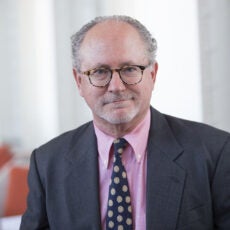
A Viral Response to Climate Change
We are about to run a national pandemic experiment on prayer versus policy. And one that we shouldn't replicate for the climate crisis.
Many observers have drawn comparisons between climate change and the COVID-19 pandemic. The most compelling one seems to be the urgent response to the pandemic compared to the lagging response to climate change. Indeed, the response to the pandemic has been so swift that it actually generated a debate about the appropriate balance between shutting down infections and restarting the economy. This debate has exposed a simple truth: a healthy economy relies on a healthy population (a familiar truth in the climate debate).
Unfortunately, the exercise of comparing and contrasting the pandemic and climate change usually ends with wishful thinking: if we apply the urgency of pandemic to climate then we succeed. But this does little more than wish away humanity’s behavioral biases about risk that limit our ability to confront the future and share collective costs. There are well understood cognitive biases that account for why humans discount the future, do so in nonlinear ways, fear loss in the present more than they desire gain in the future, and so on.
We need a better tagline than: Fight climate change like a pandemic.
The salient difference between pandemic and climate change is the pace of accelerating impact on humans in specific places. Because humans are the vector of COVID-19, our policy responses focus on limiting long- and short-distance internaction in order to flatten the peak demand for medical care for the symptomatic infected population. But humans are not the vector of climate change. The vector for climate change is the interacting geo-physical system of air, water, and land that support the biosphere on which human life demands.
And because we are more likely to act on today’s fear instead of tomorrow’s gain, our policy response to a pandemic is naturally, and unfortunately, more immediate than our response to a climate emergency.
So, while there are many differences between pandemic and climate, there is one stunning similarity on the policy front that stands out. Here in the United States we have politicized two highly technical issues: climate and pandemic. Indeed, that division has been motivated by a distrust of “elite” scientific expertise said to justify progressive values and suppress conservative values. The fact that pandemic is playing out over months rather than decades makes it much easier to see the impact of this polarization on outcomes.
In coming weeks, the United States is about to run a natural experiment on this hypothesis. Coastal states and cities have led the policy response to pandemic in the face of a toxic mix of indifference and incompetence by the national goverment. Heartland states and rural areas have lagged in that policy response, often making principled arguments about constitutional rights to assemble and worship. April, the cruelest month, is likely to provide America and the world with the clearest example in modern times of the difference that science makes to life and death policy outcomes. The coming weeks are shaping as a state-level contest of prayer versus policy in the U.S. that could probably happen nowhere else in the world.
And that’s the tagline that climate policy needs: Act now and survive. People who act in response to scientific evidence survive at higher rates than those who don’t, all other things equal. For the energy transition, at the core of climate policy, this matters even more with falling costs of distributed and renewable energy systems that allow smaller scale investments in resilience and productive economies. These trends strengthen the claim that local actions can create local benefits regardless of whether other localities act or not.
Climate change is not contagious. Nations, states, cities, and rural areas that act now to transition their economies to efficient energy systems and to adapt their settlements to the impacts of changing temperatures will suffer….but at measurably lower rates than places that don’t transition and adapt in time.
Mark Alan Hughes
Director EmeritusMark Alan Hughes is director emeritus of the Kleinman Center. During his time as faculty director, he led the Center and wrote on topics ranging from deep decarbonization to the future of Philadelphia’s energy landscape.

